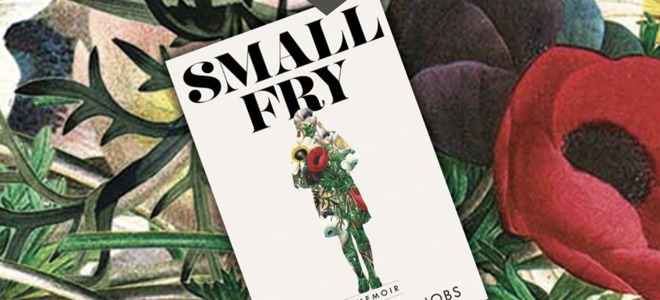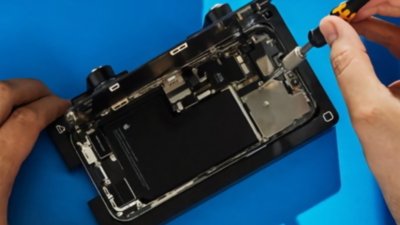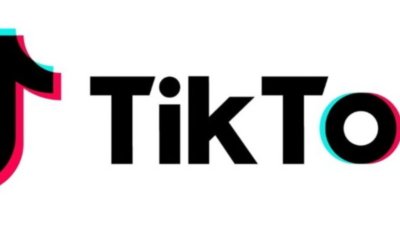Lisa Brennan-Jobs details life with Steve In interview promoting memoir
The daughter of Apple cofounder Steve Jobs and namesake of the Lisa computer continued to promote her new memoir this week in an interview, talking about her complicated relationship with her father — and why she wishes she could give all of his money to Bill Gates' foundation.
Lisa Brennan-Jobs, the oldest daughter of Apple cofounder Jobs, has written a memoir about her life, "Small Fry." The book, which comes out Sept. 4, tells stories from the life of a child who at first was not acknowledged by her famous father, although he did, famously, name a computer after her.
In an interview to promote the book with The New York Times, the 40-year-old Brennan-Jobs appeared to have some regrets about exactly how far she went in the book.
The Times interview includes details from the memoir, including quite a bit of cruelty directed at Brennan-Jobs by her father, some of which has been reported before.
Jobs, she says, repeatedly told her she would inherit "nothing." He told her, falsely, that the Lisa computer was not named for her. He was "cold" to her when they lived together during her high school years. At one point, when Brennan-Jobs' mother expressed interest in a house, Jobs bought the house himself and moved into it. And Jobs' official Apple bio once described him as the father of three children, omitting Lisa.
The book also contains some positive stories about Jobs, and Brennan-Jobs says that she forgives her father for the cruel things he did and wishes for readers of the book to forgive him too.
A contingent of other Jobs family members, including his widow Laurene Powell Jobs, his sister Mona Simpson and Jobs' other children, issued a statement to the newspaper: "Lisa is part of our family, so it was with sadness that we read her book, which differs dramatically from our memories of those times. The portrayal of Steve is not the husband and father we knew. Steve loved Lisa, and he regretted that he was not the father he should have been during her early childhood. It was a great comfort to Steve to have Lisa home with all of us during the last days of his life, and we are all grateful for the years we spent together as a family."
Powell Jobs makes appearances in the book, some of which are grating. In one scene, Jobs forces Brennan-Jobs to watch a seemingly inappropriate encounter with Powell Jobs, "pulling her in to a kiss, moving his hand closer to her breasts," and up her thigh, "moaning theatrically," the report said. When Brennan-Jobs attempts to leave, Jobs stopped her.
"'Hey Lis,' he said. 'Stay here. We're having a family moment. It's important that you try to be part of this family.' I sat still, looking away as he moaned and undulated," Brennan-Jobs writes.
Powell Jobs again appears in a scene describing a therapy session in which Brennan-Jobs confesses feeling lonely, saying she wants her parents to say good night to her, the report said.
"We're just cold people," Powell Jobs responded to the therapist. The line, according to Brennan-Jobs, is the best in the book.
Despite promises from Jobs that Lisa would "inherit nothing," she in fact received an inheritance in the millions, the equal to Jobs' other children. But she told the Times that were it up to her, she would have left Jobs' multi-billion dollar fortune to the Bill and Melinda Gates Foundation, which was founded by her father's longtime rival.
"I feel like the Gates Foundation is really doing good stuff, and I think I would just hot potato it away," she said.
Despite the at times harsh portrayal of her father, Brennan-Jobs does share anecdotes that cast Jobs in a favorable light. In the interview, Brennan-Jobs says one reason she wrote the memoir was to figure out why Jobs shared his wealth "more freely" with the children he had with Powell Jobs. Looking back, she believes Jobs was attempting to apply teach her that money can corrupt, a notion that reflected his values.
"You can have a value system and be unable to totally live it," she told the publication. "And you can imagine being that rich and famous and how amazing it is if you can hold on to some of your value system. He didn't do it right. He didn't apply it evenly. But I feel grateful for it."
The book was first announced last spring, and an excerpt was published in Vanity Fair earlier this month, one that hinged largely on the different things Lisa was told over the course of her life about whether or not the Lisa computer was really named for her.
 Stephen Silver
Stephen Silver











 Marko Zivkovic
Marko Zivkovic
 William Gallagher
William Gallagher
 Andrew Orr
Andrew Orr



 Amber Neely
Amber Neely
 Christine McKee
Christine McKee







